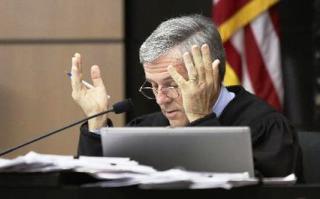Article Courtesy of The Palm Beach Post By Kimberly Miller Published April 17, 2012 Nearly 7,000 stagnating foreclosure cases lie dormant in Palm Beach County's courts, creating a payment-free limbo for some homeowners but a stain of vacant and abandoned homes in deteriorating neighborhoods. These sleeper files, which have remained inactive for a year or longer, date as far back as 1997, according to documents provided to The Palm Beach Post by the clerk of courts.
"Right now, we're just waiting to see who is going to make the next move." The 6,927 zombie files make up about 17 percent of Palm Beach County's 39,252 foreclosure cases. The banks with the largest number of dormant cases include Bank of America (670), JPMorgan Chase (602) and Deutsche Bank (546). After 10 months of inaction, a homeowner, or the court itself, can seek a dismissal of the foreclosure based on non-prosecution. If the bank fails to react within 60 days, the case can be thrown out and the bank forced to start over. It's a move Palm Beach County Chief Judge Peter Blanc said might begin in earnest this summer after a one-time bump in state funding allows him to hire additional judges to tackle foreclosures and get rid of "deadwood." The last court-initiated weeding-out occurred two years ago when Blanc received $640,000 to add judges, he said. "There's a whole variety of reasons why cases were dismissed, which is sort of consistent with how the practice was all over the place in the early years," Blanc said. The frustration over stalled and prolonged cases can be heard in Palm Beach County Judge John Hoy's foreclosure court. This month, Hoy waved a calendar at bank attorneys who had missed deadlines or sought to cancel foreclosure sales for reasons such as a failure to publish the auction announcement or belief that a loan modification was in the works. Often the claim that a short sale or loan modification is pending comes after a final foreclosure judgment is made as banks backpedal on rulings. "This is a 2009 case," Hoy said to one lender attorney who was seeking an extension of time. "If you can't take care of your old cases, don't file new ones. " On another foreclosure, which was filed in January 2008, Hoy was equally nonplussed. "There are 111 docket entries in this case and we're still screwing around on a motion to dismiss?" he asked the attorneys. "What's going on around here?" When the lender's attorney couldn't produce an endorsed note proving ownership, Hoy dismissed the case. "I kicked them back just now to January 2008," said foreclosure defense attorney Malcolm Harrison after Hoy's decision. "You'll find a lot more errors on these older cases because they didn't know what they were doing." Harrison hopes the "fatal flaw" in the bank's case will force it to modify his client's mortgage instead of refiling the foreclosure. The homeowners have been living in their Olympia home in Wellington without making a payment for about four years. The reasons cases may be delayed are myriad, said Guy Cecala, publisher of the trade publication Inside Mortgage Finance. They include:
After the collapse of the Plantation-based Law Offices of David J. Stern in March 2011, about 100,000 foreclosure cases statewide needed to be transferred to new attorneys. |
